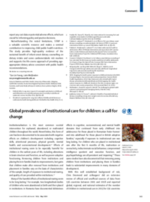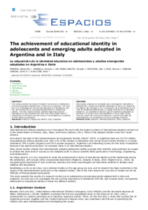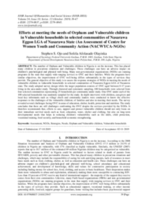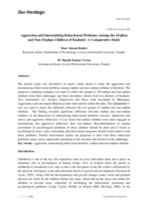Child Indicators Research Volume 13, Issue 2: Child Neglect
Following the 6th Conference of the International Society for Child Indicators (Montreal, 2017), this Special Issue of Child Indicators Research was compiled to advance an interdisciplinary understanding of the complexity of conceptualizations, determinants, consequences, and measurement of child neglect around the world and to highlight the need for reforms in child protection systems.




